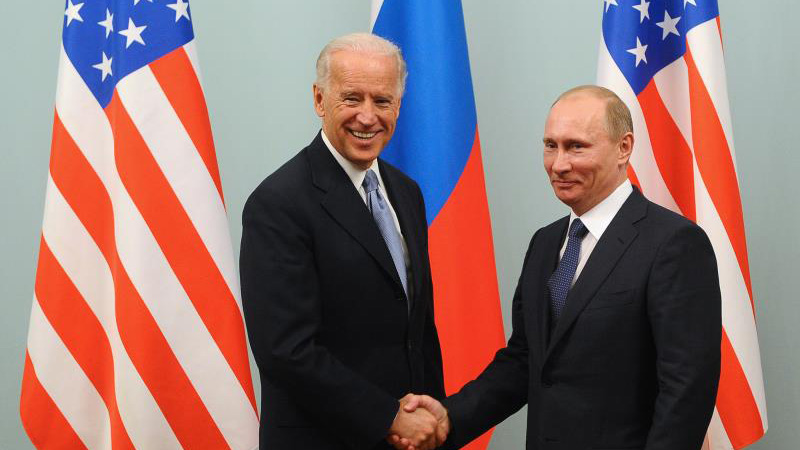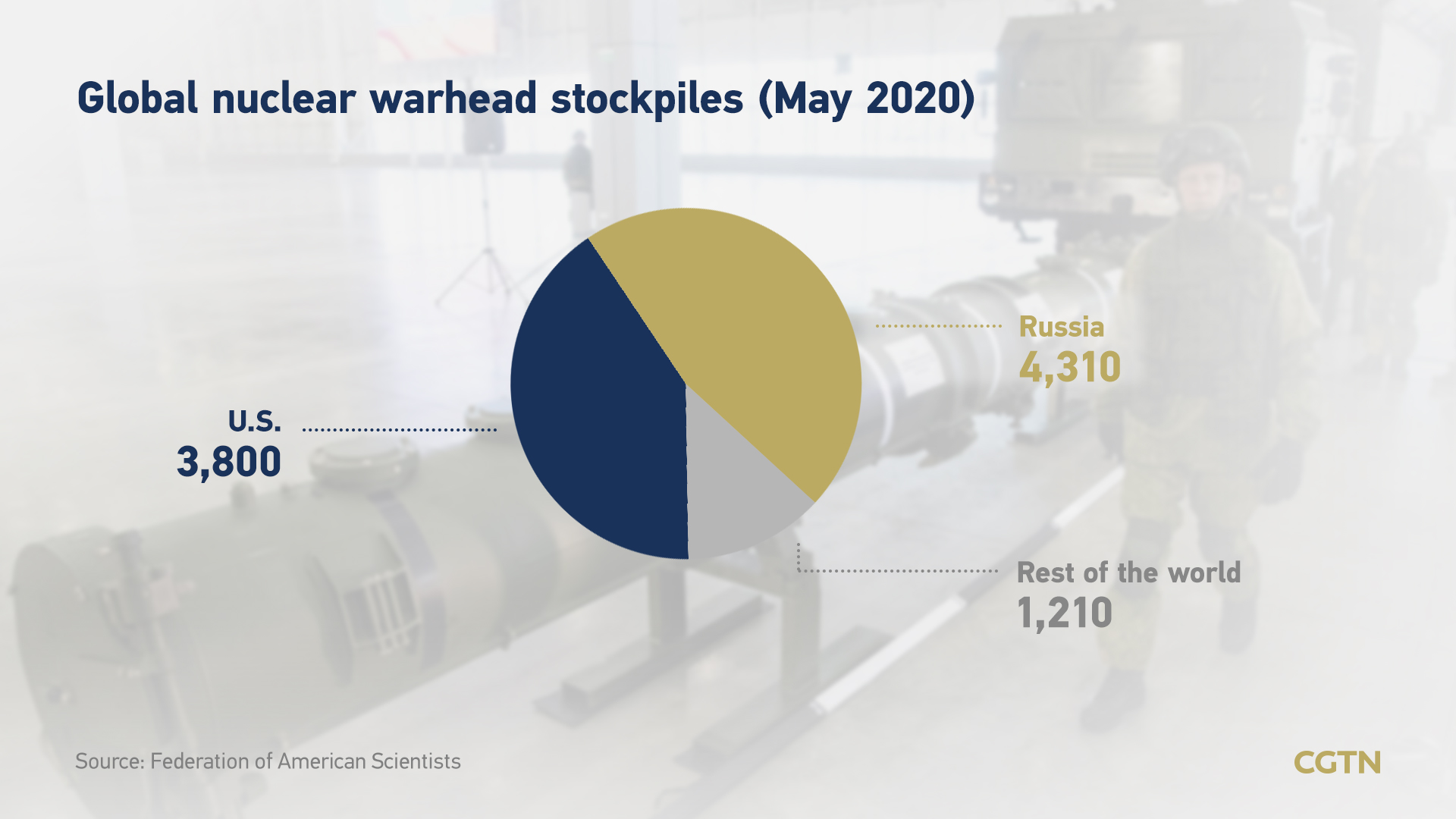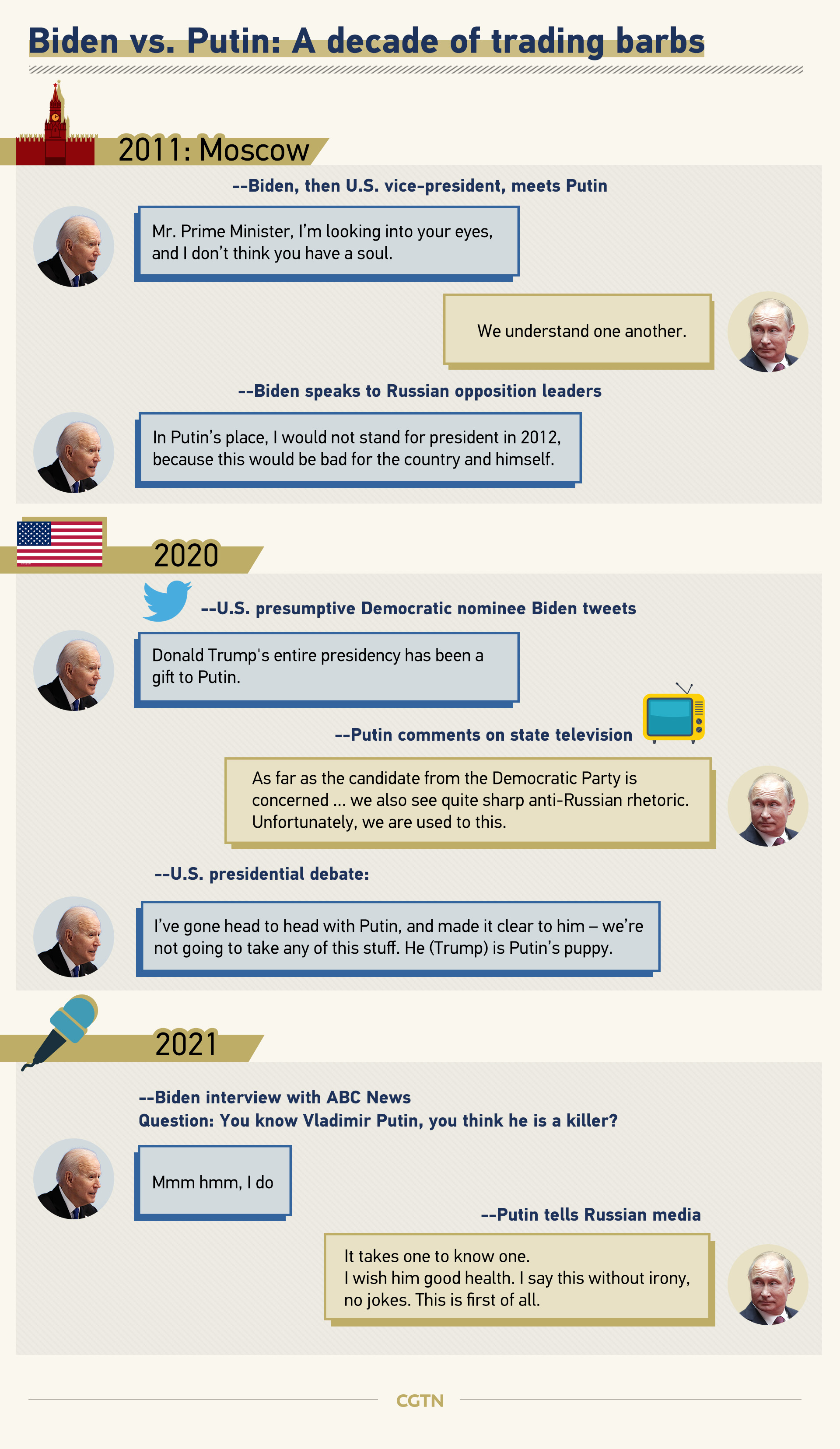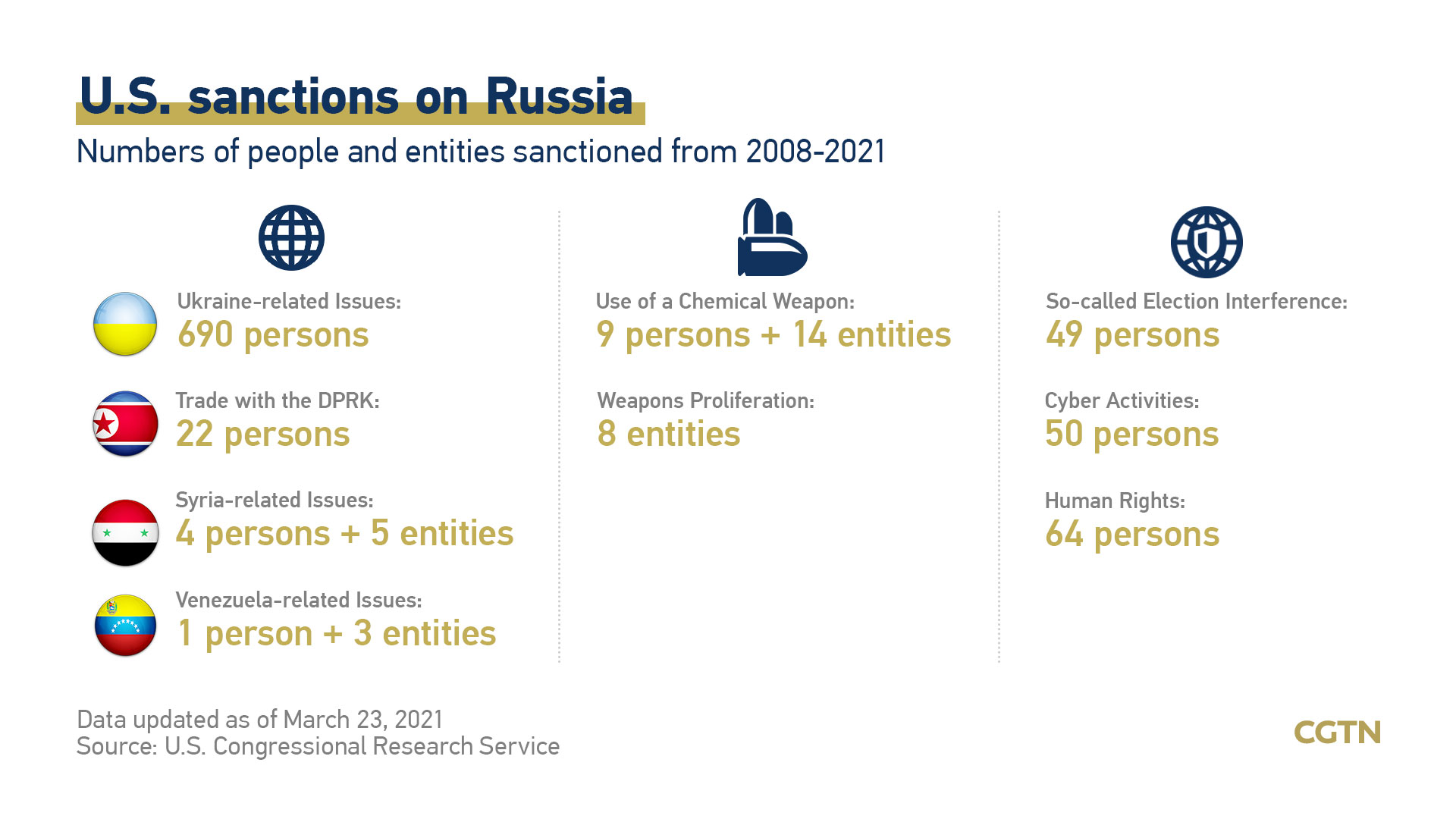02:15

Russian President Vladimir Putin said in June 2019 that relations between Moscow and Washington were going downhill and getting worse. Experts believe that Putin's gloomy assessment is now coming true, and Spain's media El Mundo said it's the worst moment for the Russia-U.S. relationship in 41 years.
Does the renewal of New START signal a thaw?
While Russia and the U.S. quickly agreed to extend the New START arms control pact days after U.S. President Joe Biden took office, experts don't believe the extension means a thaw in the Russia-U.S. relationship.
Read more:
The history of U.S.-Russia nuclear arms control deals and what's next
The New START treaty limits Russia and the U.S. from deploying more than 1,550 strategic nuclear warheads each.

"Russia and the U.S. agreed to extend the pact because both countries still need it, and it doesn't signal any possibility to restart bilateral ties," Wu Dahui, a professor of international relations and expert on China-Russia ties at Tsinghua University, told China Media Group (CMG).
Diao Daming, an associate professor with Renmin University of China, believes the renewal of the pact means the two countries can still have "negative" cooperation and that arms control is one of the few and critical areas that the two countries can cooperate.
"On the other hand, if Washington didn't extend the pact, it would have had to increase its military expense, which might affect its domestic agenda and add extra burden to the U.S. So, Biden's diplomacy is to be tough on Russia, tough enough to strengthen its alliances but without costing itself too much. This the ceiling," Diao told CMG.
Is a U-turn possible in the Biden era?
Under former U.S. President Donald Trump's administration, though he frequently spoke about Putin with approval and even held a summit with Putin in 2018, relations between the two countries did not show substantial improvement. It continued to deteriorate over Syria, Iraq, arms control, human rights, cybersecurity and other issues. Russia has described the bilateral relationship as "very bad" and "facing collapse."
Biden has repeatedly criticized Russia during his presidential campaign, showing a tough attitude toward Russia. He described Russia as the biggest threat to the United States and made it clear after taking office that he would change the Trump-era policy toward Russia.

"Since Biden took office, his administration has been very tough on Russia. Most of Biden's key staff have served in the Obama administration, and they still have resentment toward Russia for the Crimea issue. Until now, they still attribute Hillary Clinton's failure in the 2016 election to Russia's alleged interference. Therefore, this administration inherently dislikes Russia," Diao said.
Since assuming power, Biden has attended the G7 Summit and the Munich Security Conference and increased interaction with the European Union (EU) and NATO in an attempt to restore and strengthen the transatlantic partnership and jointly exert pressure on Russia.
On March 2, the U.S. and the EU announced sanctions and restrictions against Russian individuals and entities over the case of opposition leader Alexei Navalny. The Kremlin called the sanctions "a hostile anti-Russian attack" and vowed to retaliate.

How much worse could it get?
Experts predict that there would be no possibility for the U.S. to change its hardline posture against Russia and that the worst result might be a break of ties.
The U.S. has warned that further sanctions are upcoming, as U.S. intelligence on March 17 released a report finding that Putin authorized influence operations to help Trump's re-election bid. The Kremlin has dismissed the report as baseless.
Diao said U.S. sanctions on Russia's financial sector would occur repeatedly, and it might also ramp up military drills in areas such as the Baltic Sea and the Black sea.
Though the two sides would try to avoid major conflict and uncontrollable situations, the possibility of a regional clash is increasing, Diao said.
Russia-U.S. ties nosedived on March 17 after Biden agreed in an American ABC News interview that Putin was "a killer." Russia responded by recalling its ambassador in Washington for consultations.
Professor Wu said Russia's recalling of its envoy means that Russia is prepared to cut ties with the U.S., though it said the move was designed to ensure bilateral ties did not degrade irreparably.
"It's a signal to the U.S. that if you want to go all the way to the bottom, well, I'm going to step on the gas, and the worst thing that can happen is that Russia cut off diplomatic relations with the U.S.," he said.

